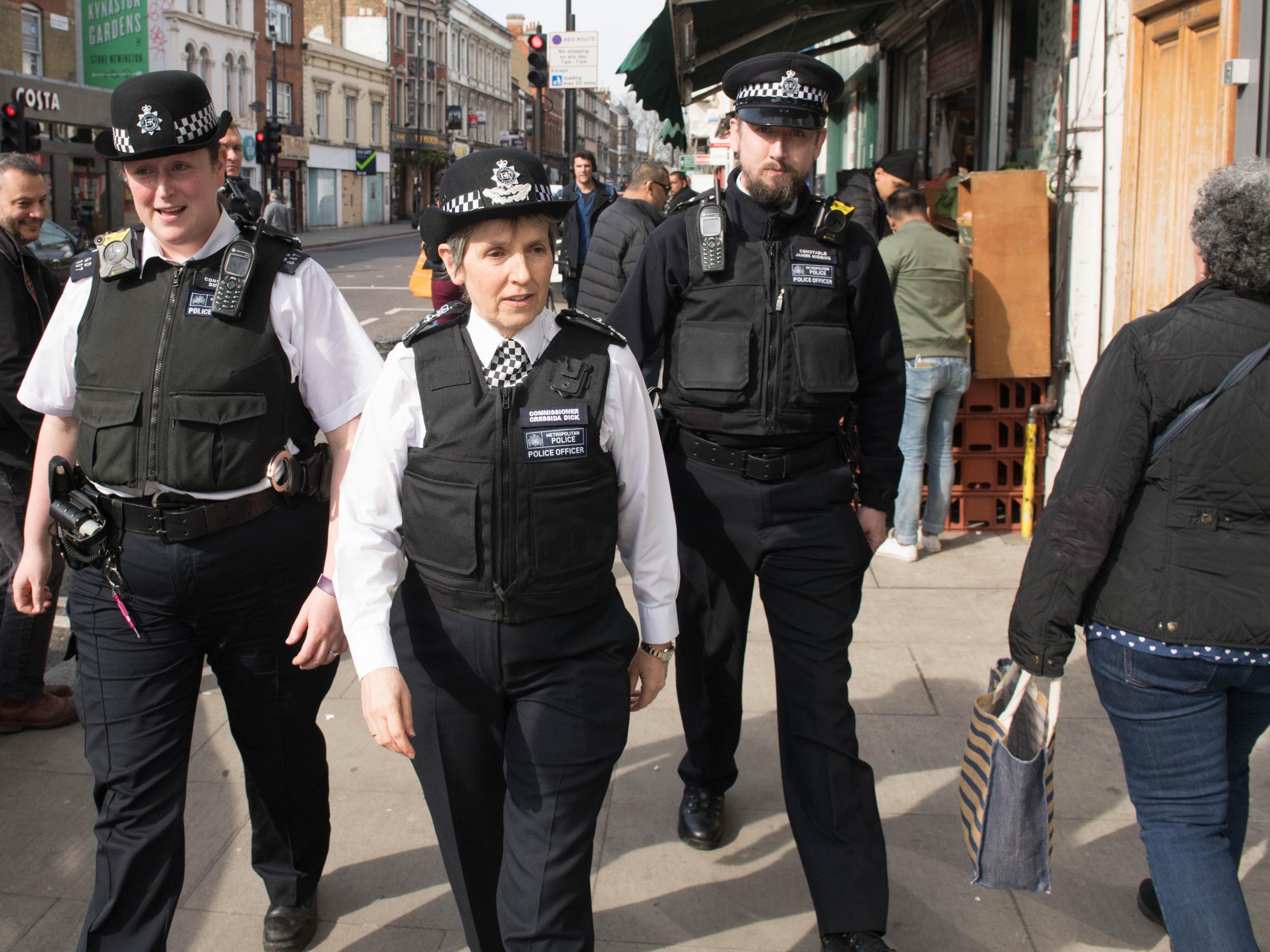Stop and search alone is not the answer to London's violent crime problem
Without action now, the violence will spread out from London with the 'county lines' strategy used by metropolitan gangs to win new, rural markets for their drug and other illegal trades

Your support helps us to tell the story
From reproductive rights to climate change to Big Tech, The Independent is on the ground when the story is developing. Whether it's investigating the financials of Elon Musk's pro-Trump PAC or producing our latest documentary, 'The A Word', which shines a light on the American women fighting for reproductive rights, we know how important it is to parse out the facts from the messaging.
At such a critical moment in US history, we need reporters on the ground. Your donation allows us to keep sending journalists to speak to both sides of the story.
The Independent is trusted by Americans across the entire political spectrum. And unlike many other quality news outlets, we choose not to lock Americans out of our reporting and analysis with paywalls. We believe quality journalism should be available to everyone, paid for by those who can afford it.
Your support makes all the difference.Stop and search has a long and often inglorious history dating back at least to the Vagrancy Act of 1824. Misuse of “sus” laws, where a police officer was given the power to stop and search any person “on suspicion”, were a factor in waves of riots in the 1980s.
Baroness Doreen Lawrence’s latest intervention in the debate about the murder of her son reminds us just how institutionally racist British policing has been. It was never clear that disrespectful and random questioning of young black men yielded a great dividend in public safety, or even marijuana, and it generally destroyed confidence in community policing, particularly in London.
It bears mentioning that if the white thugs who stabbed Stephen Lawrence to death a quarter century ago had been stopped and searched, or thought there was a possibility of it, he might not have died. As it is, Stephen would have been more likely to suffer official harassment than his assailants.
Such a legacy of mistrust is why Sadiq Khan, the mayor of London, was once sceptical about the power, and about the parallel abuse of traffic regulations to target ethnic minorities. Times, though, do change. Today, though the “crisis” is sometimes absurdly exaggerated – some make London sound as dangerous as Mogadishu or Raqqa – there is a very obvious problem, concentrated in some districts of London and among young people of colour, though not confined to such places and groups.
There is understandable public fear, and Mr Khan is right to respond with a modernised and more intelligent version of the traditional stop and search power. Past scandals now mean the police are required to keep proper records of stops, and the proliferation of body cameras mean that police officers’ work can be scrutinised and, it’s hoped, seen to be fair and proportionate. Policing is more than ever in the open, and race relations are healthy enough to support the use of strong powers.
Above all, as Mr Khan stressed, stop and search powers have to be used intelligently – in all senses of the word. The police even now have much intelligence at their disposal, and if they can use enhanced powers to catch known miscreants then that would be a net benefit to the wider community.
There is also a strong argument for a greater police presence on the streets. It is often said that a bobby on the beat would on average come across a crime being committed on a foot patrol once every 17 years. Hence the move to using cars and other means of upholding the law. Yet as the Metropolitan Police commissioner, Cressida Dick, has said, the police crucially rely on public support, and that is why she is deploying a further 300 officers in the capital this weekend. Longer term, it stands to reason that a visible human presence in the hotspots for knife and gun crime, and in known hunting grounds of moped muggers, serves as some sort of deterrent to the lowlifes. Crucially, beat officers can gather invaluable intelligence from the public they serve, because the public see a clear benefit to themselves in working with them to bear down on the drugs trade, and the people traffickers who blight neighbourhoods.
Manchester, Nottingham, Glasgow and other cities have experienced the kind of spikes in lethal crime that London has seen, on and off, for many decades. The Krays and the Richardsons remain legendary for their violence. Gangs such as those depicted in BBC’s Brummie Peaky Blinders, or even Dickens’s Fagin and his child thieves, are hardly a 21st century invention. Yet the size and viciousness of the gangs has few real parallels in the past, not least in the use of firearms derived from the wars in the Balkans. Without action now, the violence will spread out from London with the “county lines strategy” strategy used by metropolitan gangs to win new rural markets for their drug and other illegal trades.
London’s struggles with violent crime are the concern of the whole country. If these murders and vicious assaults took place in Chelsea rather than Tottenham then the home secretary would be chairing a Cobra meeting now. Moreover they threaten to degrade poorer neighbourhoods in every city, town and village. It is an emerging national emergency. For the sake of pushing back against the Americanisation, nationalisation and militarisation of London’s gangs, we need action before things really do get out of control.
Join our commenting forum
Join thought-provoking conversations, follow other Independent readers and see their replies
Comments